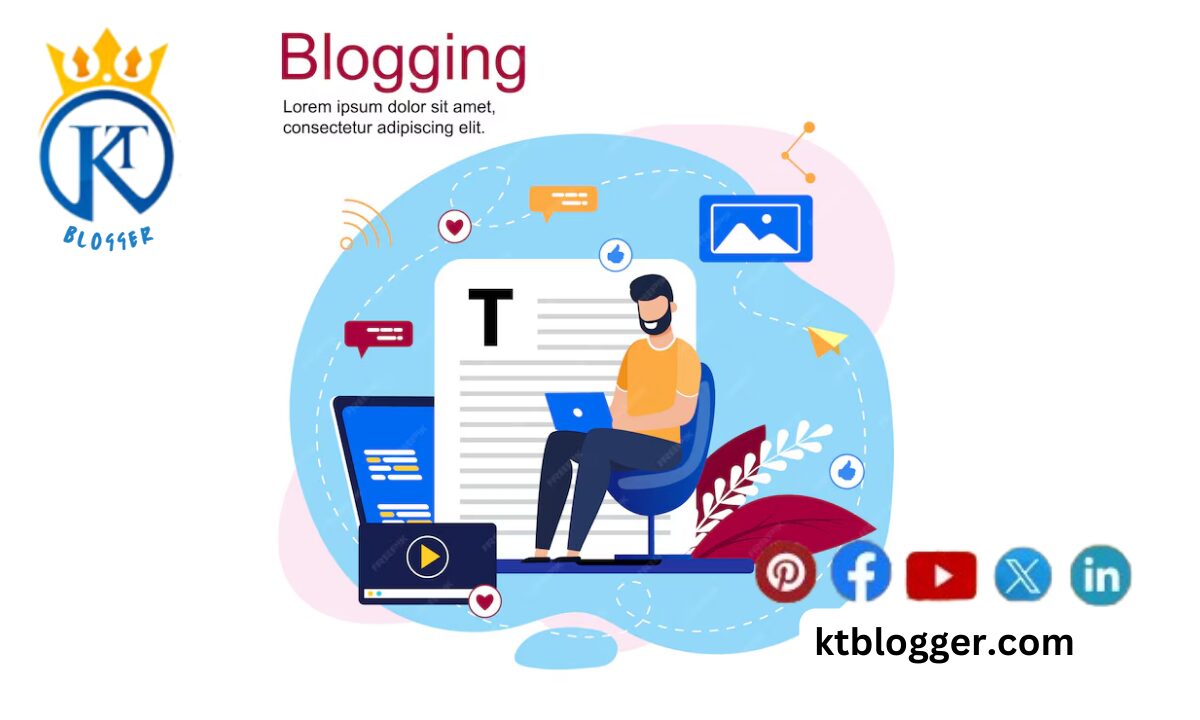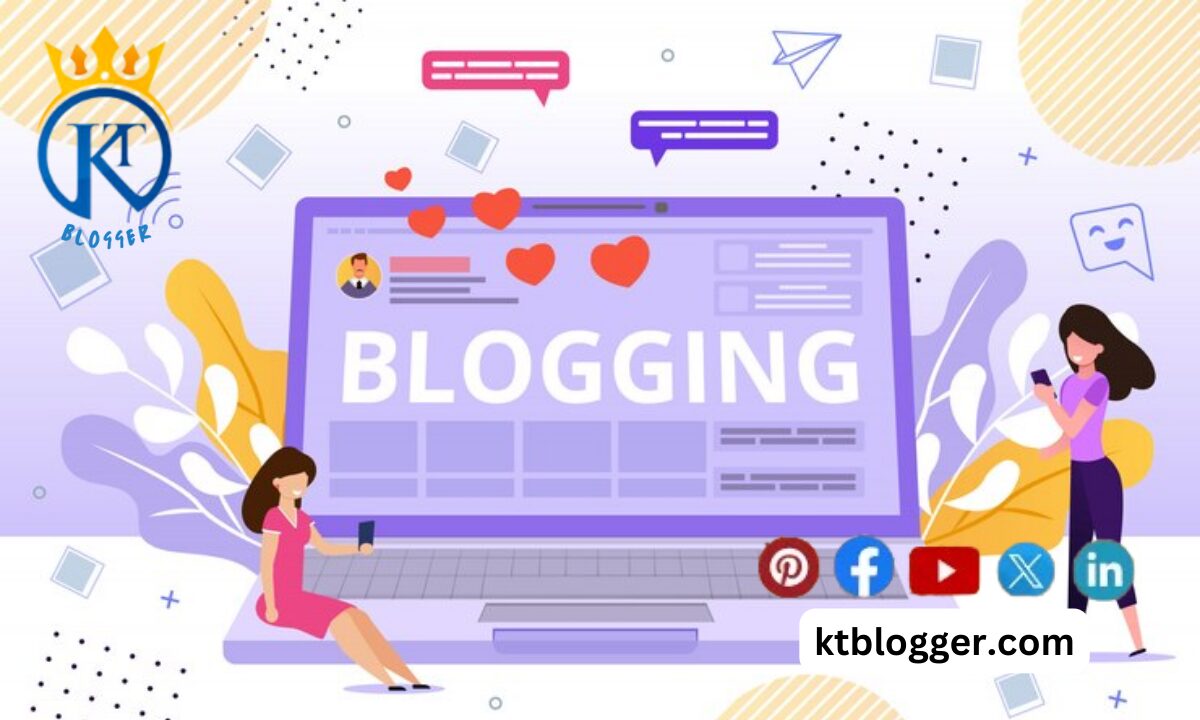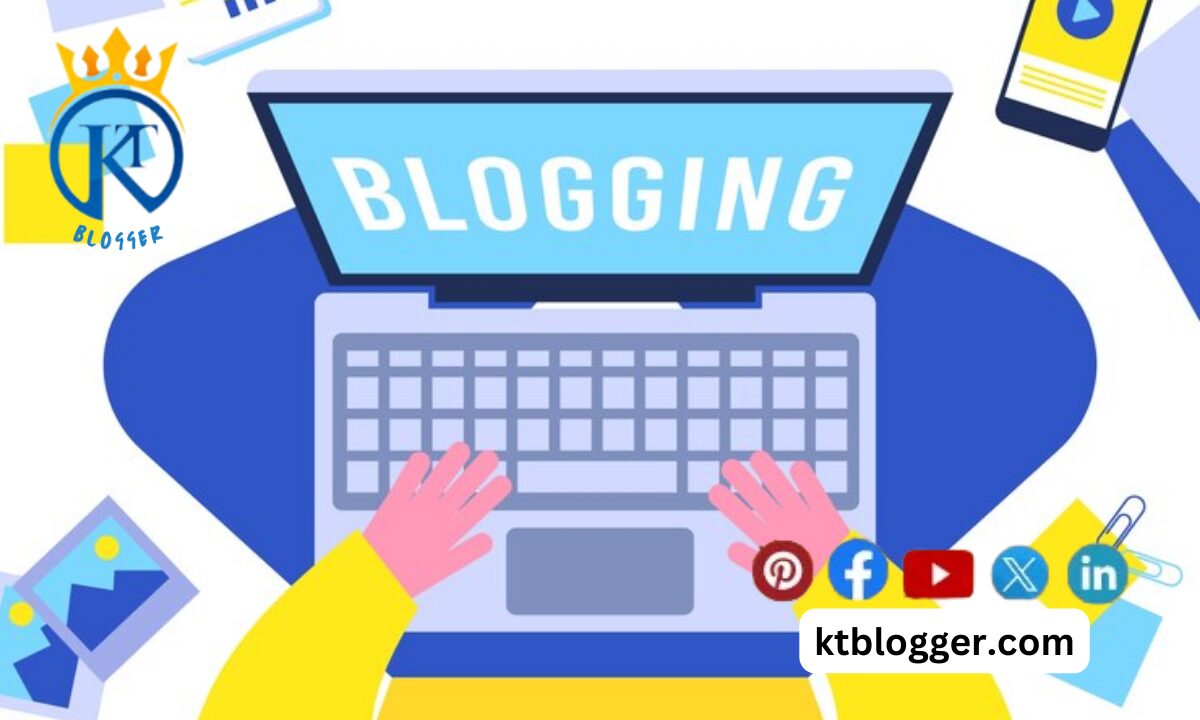Starting a blog adventure can lead to valuable outcomes and thrilling opportunities. When you start blogging, you can become known as someone who knows a lot about your topic. You can also earn money in a way that fits your schedule. Plus, you can build relationships with like-minded individuals who share your passions.
In this guide, I’ll teach you how to start blogging and earn money from it. It doesn’t matter if you’re just starting out or if you’ve been blogging for a while. Let’s begin this adventure together!
To kickstart your blogging journey, first, determine your niche and pick a domain name. Next, choose a blogging platform like WordPress and install it. Now, focus on content creation using blogging tips and resources. Ensure your blog is SEO-friendly for better visibility. Promote your blog across various channels and monetize it with ads or affiliate marketing. With dedication and consistency, you can turn your blog into a lucrative venture.

Content
- 1 1. What is Blogging?
- 2 2. Reasons You Might Want to Start a Blog
- 3 3. How to Start Blogging?
- 3.1 1. Figure Out What You Want to Write About
- 3.2 2. Check Out the Competition
- 3.3 3. Think About Who You’re Writing For
- 3.4 4. Plan Your First Blog Post
- 3.5 5. Choose a Name for Your Blog
- 3.6 6. Create Branding Elements
- 3.7 7. Secure Your Domain Name
- 3.8 8. Choose a Hosting Provider
- 3.9 9. Build Your Website
- 3.10 10. Publish Your First Post
- 3.11 11. Promote Your Blog
- 3.12 12. Track Your Analytics
- 4 4. How to Monetize Your Blog
- 5 Summing Up
1. What is Blogging?
Back when the internet was new, blogs were kinda like online diaries. People would write about their thoughts and experiences, sort of like keeping a journal.
But nowadays, blogging is way more than just writing down stuff. Both regular people and businesses use blogs to share information and sometimes to sell things.
2. Reasons You Might Want to Start a Blog
There are lots of reasons why someone might start a blog. Maybe you want a fun hobby, or you’re looking to make some extra cash. Here are a few other reasons:
1. Keep Track of Your Life
The word “blog” comes from “weblog,” which basically means an online log of what’s going on in your life. Starting a blog could be a way to keep all your thoughts and photos organized in one place.
2. Let Your Creativity Shine
Blogging isn’t just about writing—it’s about being creative. You can write, edit, and design your blog however you like. It’s a cool way to express yourself without spending a ton of money.
Nobody else has your exact thoughts and experiences. A blog lets you share what’s on your mind with others and maybe even make some new friends along the way.
4. Connect With People
Blogging is a great way to meet new people, whether they’re other bloggers or folks who read your blog. Social media sites like Facebook and Instagram are buzzing with bloggers just waiting to connect.
5. Improve Your Writing and Marketing Skills
Blogging takes practice, which means you’ll get better at writing and promoting your blog over time. Plus, you’ll learn about stuff like managing websites and using social media to get the word out.
6. Build Your Reputation
Having a blog can make you seem like an expert in whatever you’re writing about. It’s a way to show off what you know and maybe even get recognized for it.
7. Generating Revenue
Believe it or not, you can earn money from your blog. Some bloggers make a decent living from it, according to a website called Indeed.
3. How to Start Blogging?
To embark on your blogging journey, first, choose a niche that aligns with your interests and expertise. Design your blog to reflect your style and appeal to your target audience. Write compelling blog posts regularly, optimizing them for search engines.

Utilize social media, email marketing, and content promotion to build an audience. Monetize your blog through various avenues such as freelance writing, personal branding, and blogging income streams. Success in blogging requires dedication, consistency, and fostering a supportive community around your content.
If you’re excited about starting your own blog but feeling unsure about where to begin, don’t worry!
The following steps are your roadmap to success, regardless of your ultimate aspirations.
1. Figure Out What You Want to Write About
The first step in starting a blog is deciding what you want to write about. This can be a bit tricky, but it’s important to choose a topic or niche that you’re passionate about and that you think other people will be interested in too. Think about what you love to talk about or what you’re knowledgeable about, and use that as a starting point.
2. Check Out the Competition
Once you’ve chosen your topic, it’s a good idea to see what other bloggers are writing about in the same niche. This can give you an idea of what’s already out there and help you figure out how you can make your blog stand out. Take a look at other blogs in your niche and see what topics they’re covering and what kind of content they’re producing.
3. Think About Who You’re Writing For
It’s also important to think about who your audience is going to be. Who do you want to read your blog? What kind of content are they interested in? Thinking about your audience can help you tailor your content to their interests and preferences, which will make your blog more appealing to them.
4. Plan Your First Blog Post
Once you’ve nailed down your topic and audience, it’s time to start planning your first blog post. Think about what you want to say and how you want to say it. Do some research if necessary to make sure you’re providing valuable and accurate information to your readers.
5. Choose a Name for Your Blog
Every blog needs a catchy and memorable name. Take some time to brainstorm ideas and come up with a name that reflects the topic and tone of your blog. Once you’ve settled on a name, do a quick search online to make sure it’s not already taken.
6. Create Branding Elements
In addition to a name, you’ll also want to think about branding elements like a logo, color scheme, and font. These elements will help give your blog a cohesive and professional look. You can create these elements yourself using design software or hire a designer to help you out.
7. Secure Your Domain Name
Once you’ve chosen a name for your blog, you’ll need to register a domain name. This is the web address where people will find your blog online. Choose a domain name that’s easy to remember and reflects the name of your blog.
8. Choose a Hosting Provider
Next, you’ll need to choose a hosting provider for your blog. This is the company that will host your blog on their servers and make it accessible to visitors. There are many hosting providers to choose from, so do some research to find one that offers the features and support you need at a price you can afford.
9. Build Your Website
Now it’s time to build your blog! You can use a website builder like WordPress or Squarespace to create your site, or you can hire a web designer to help you out. Choose a template or design that fits the look and feel of your blog, and start adding your content.
10. Publish Your First Post
Once your website is up and running, it’s time to publish your first blog post. Write a compelling introduction to your blog and share some information about yourself and what readers can expect from your blog. Then, dive into your first topic and start sharing your knowledge and insights with the world.
11. Promote Your Blog
Once your first post is live, it’s time to start promoting your blog and driving traffic to your site. Share your posts on social media, join online communities related to your niche, and reach out to other bloggers for guest posting opportunities. The more you promote your blog, the more readers you’ll attract.
12. Track Your Analytics
Finally, keep track of how your blog is performing by monitoring your analytics. This will help you see which posts are resonating with your audience and which ones aren’t, so you can adjust your content strategy accordingly. Use this information to continually improve and grow your blog over time.
4. How to Monetize Your Blog
Once your blog is up and running, you might be wondering how to turn your passion into a source of income. Luckily, there are several ways to monetize your blog and earn money from your content.

1. Brand Partnerships
One way to make money from your blog is by partnering with brands to create sponsored content. This could involve writing sponsored posts, hosting giveaways, or featuring products in your content. Brands are often willing to pay bloggers to promote their products or services to their audience.
2. Advertising Networks
Another way to monetize your blog is by joining advertising networks. These networks will pay you to display ads on your blog, and you’ll earn money based on the number of views or clicks those ads receive. Some popular advertising networks include Google AdSense, Media.net, and AdThrive.
3. Affiliate Marketing
Affiliate marketing is another popular way for bloggers to earn money. They do this by promoting products or services and earning a commission for each sale or referral they generate. You can join affiliate programs for companies relevant to your blog’s niche. Then, you can promote them to your audience through affiliate links or banners.
4. Sell Digital Products
If you have expertise in a particular area, you can create and sell digital products such as ebooks, online courses, or printables. These products can be a great way to monetize your knowledge and provide value to your audience. Platforms like Gumroad, Teachable, and Podia make it easy to create and sell digital products online.
5. Sell Physical Products
You can also sell physical products through your blog, like t-shirts or mugs with your blog’s logo on them. Or you could recommend products related to your blog’s topic and earn a commission from sales. Platforms like Shopify and WooCommerce make it easy to set up an online store and start selling products.
6. Offer Services
If you have specialized skills or expertise, you can offer services like consulting, coaching, or freelance writing through your blog. You can promote your services on your blog and use it as a platform to attract clients and customers.
7. Create a Membership Site
Lastly, you can create a membership site where people pay to access exclusive content or resources. This can be a good way to build a community around your blog and earn recurring income.
Summing Up
Now that you know everything about how to start blogging, you understand that a blog can be an enriching, enjoyable, and potentially lucrative endeavor that allows you to connect with people. Managing a blog involves taking on various roles, but if you’re open to adapting and evolving in a dynamic environment, you’re likely to find satisfaction and achieve your goals.





